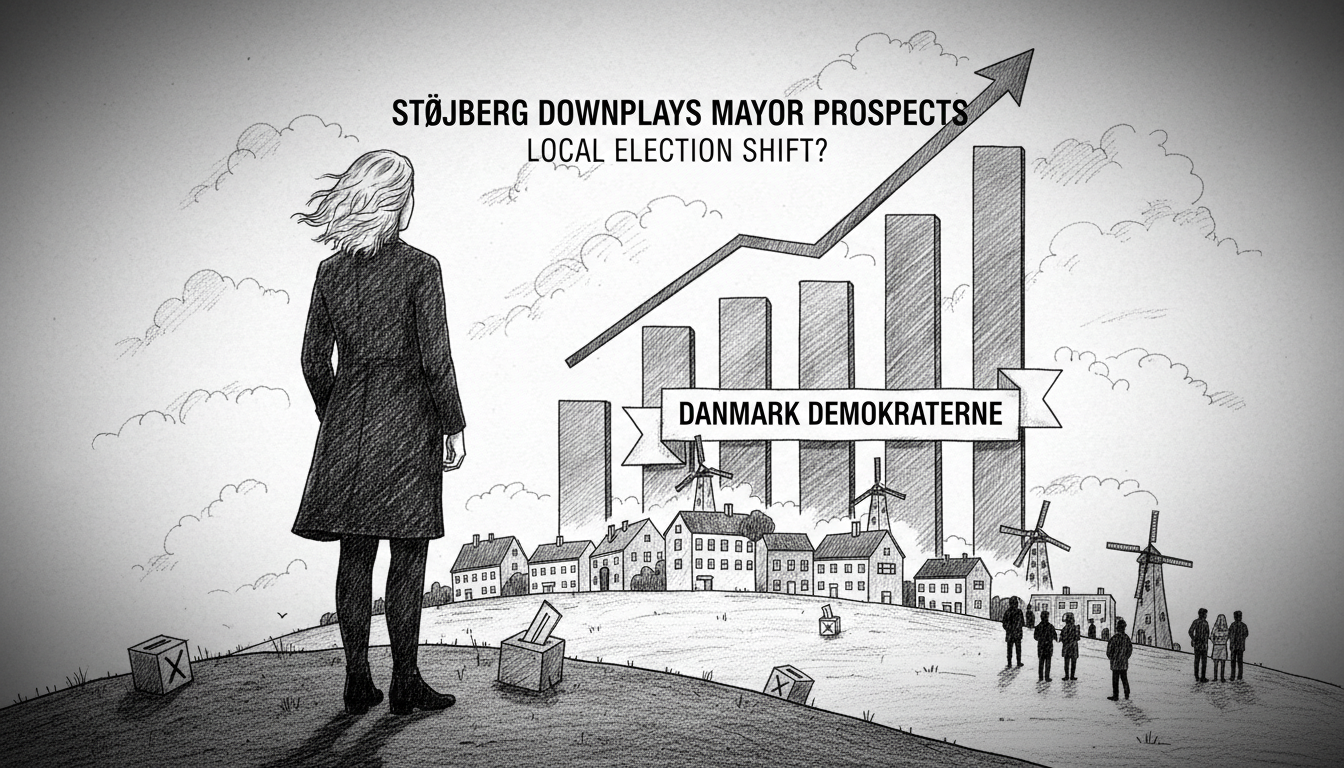Denmark Democrats leader Inger Støjberg expresses satisfaction with her party's municipal election performance while tempering expectations about securing mayor positions. The newly formed party achieved stronger than anticipated results across several Jutland municipalities and on Lolland, marking a significant breakthrough in Danish local politics.
In Ringkøbing-Skjern municipality, Denmark Democrats captured 21.7 percent of votes, creating potential for the party's first mayor position. The party also secured 16.4 percent in Mariagerfjord, which represents Støjberg's home turf. These results demonstrate substantial voter support for the party's first-ever municipal election campaign.
Støjberg deliberately downplays the possibility of mayor chains within her party. She states there are no mayor chains expected and the party never anticipated them. The party leader emphasizes that her organization remains new and lacks the solid structure of established parties. She notes they operated with significantly smaller campaign budgets compared to traditional political organizations.
Despite the tempered expectations, Støjberg acknowledges that if mayor opportunities arise, the party will naturally accept them. She describes the election outcome as much better than anticipated, particularly given the party's novice candidates and developing organizational capacity. The Denmark Democrats leader compares the current situation to a soccer match's second half where anything can happen when pieces fall into place.
Lead candidate Mads Fuglede, who still holds potential for becoming Ringkøbing-Skjern's mayor, anticipates lengthy and difficult negotiations ahead. This sentiment echoes Støjberg's assessment of the complex political landscape facing the newcomer party.
The strong performance in European Parliament elections within these same municipalities further validates the party's growing influence. Denmark Democrats' success reflects broader trends of new political movements gaining traction in Danish local politics, particularly in rural and regional areas where traditional party loyalties appear to be shifting.
Political analysts note that even without securing mayor positions, the election results represent a substantial achievement for a party competing in municipal elections for the first time. The performance suggests Denmark Democrats could become a significant force in future local governance discussions, potentially influencing policy debates around immigration, welfare, and regional development.
The coming weeks will determine whether negotiation skills match electoral success as political parties across Denmark form governing coalitions. For Denmark Democrats, the challenge involves translating voter support into tangible political influence while maintaining their anti-establishment appeal.

